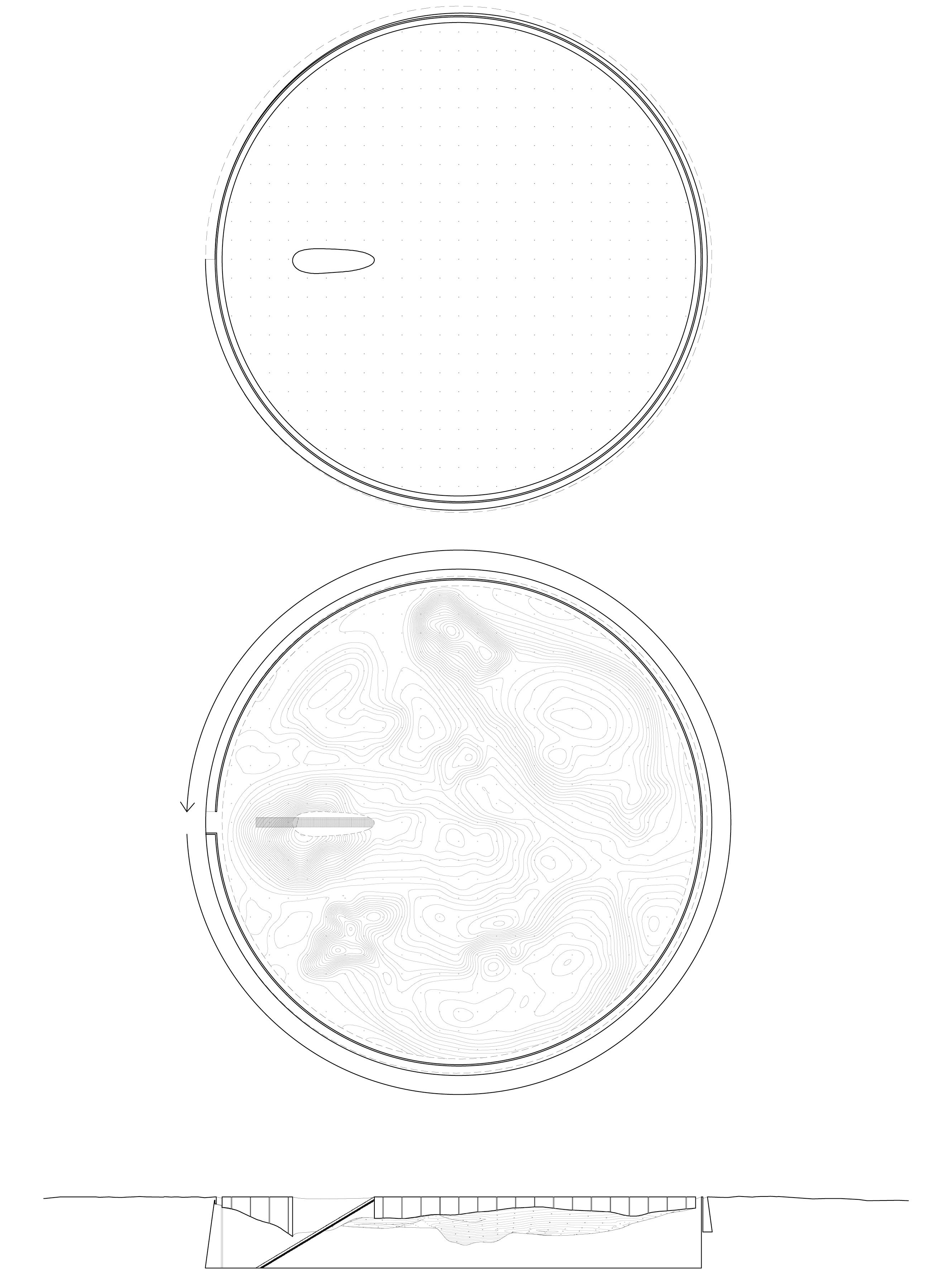The
Inverse Void is a landscape cemetery that portrays the multiplicity of the buried dead, and
the unitive nature of death itself.
Beyond the conventional means of a resting ground for the dead, the Inverse Void is a cemetery for the living. Take a traditional cemetery and flip it upside-down. The result is a burial ground above and a space of ontological contemplation below.
The visitors would embark on an existential journey through a ramp that descends gradually throughout the circumference of the cemetery. The Inverse Void brings the living below ground to experience the emptiness and solitude of the Void. The expansive space below is softly lit up through the array of skylights, each marking the death of an individual.
The burial ground is an inverted island floating above the Void. The relationship between the living and the dead are reversed, as to reposition one’s point of view towards life and death. What bridges the two polarizing concepts is an ascending staircase from the land of the living to the dead, giving positive attributes to the nature of life and its inevitable cessation. It is a humble reminder of the Heideggerian idea of our constant being-towards-death.
Non-Architecture Competition 2019
Honourable Mention
Team Member: Ben Chang, Alison Huo, Shengjie Qiu
Beyond the conventional means of a resting ground for the dead, the Inverse Void is a cemetery for the living. Take a traditional cemetery and flip it upside-down. The result is a burial ground above and a space of ontological contemplation below.
The visitors would embark on an existential journey through a ramp that descends gradually throughout the circumference of the cemetery. The Inverse Void brings the living below ground to experience the emptiness and solitude of the Void. The expansive space below is softly lit up through the array of skylights, each marking the death of an individual.
The burial ground is an inverted island floating above the Void. The relationship between the living and the dead are reversed, as to reposition one’s point of view towards life and death. What bridges the two polarizing concepts is an ascending staircase from the land of the living to the dead, giving positive attributes to the nature of life and its inevitable cessation. It is a humble reminder of the Heideggerian idea of our constant being-towards-death.
Non-Architecture Competition 2019
Honourable Mention
Team Member: Ben Chang, Alison Huo, Shengjie Qiu


